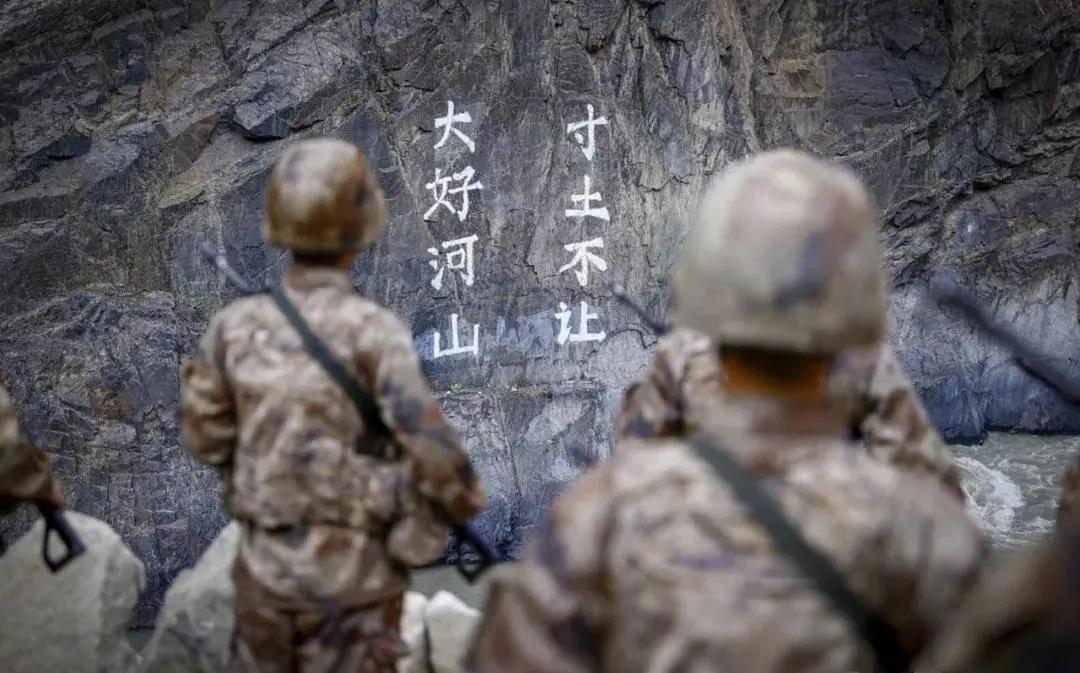Our country's land border law has been announced, clarifying the military's border defense tasks!

As is well known, China has a total of 14 land neighbors. However, most of the land borders between China and these neighboring countries have not been clearly defined in history, which has led to many controversies now.
Due to these controversies, China often has conflicts or even wars with some countries. But the use of force is still rare. Currently, except for India and Bhutan, China has resolved land disputes with most neighboring countries through peace talks.
The reason why the territorial dispute between China and Bhutan has not been resolved is also because India previously dominated Bhutan's diplomacy, which led to whether the border dispute between China and Bhutan can be resolved. In fact, India has half of the say. So, in land territorial disputes, there is only one country that China needs to resolve, and that is India.
At present, there is a huge territorial dispute between China and India. China and India each claim that the territory controlled by each other is approximately 130000 square kilometers, which is equivalent to the area of a medium-sized province.
Once such a huge disputed territory is completely resolved, it means that both sides will make significant and obvious adjustments and modifications to their respective versions of the map. For this reason, we can see that Indians occasionally provoke in border areas.
The most shameless thing is that they still claim to be the righteous side. Without a doubt, the behavior of Indians like this is because they have not been "beaten" for too long. The war in the 1960s directly silenced India for many years. In that case, what China needs to do now is to make Indians feel pain again.
Therefore, in order to stabilize the situation at our country's border and prevent the recurrence of such incidents caused by the Indian military crossing the border, China passed a bill called the "Land Border Law of the People's Republic of China" on the 23rd, which will be officially implemented on January 1st next year.
It should be noted that in this bill, it is clearly stated that China's territory and sovereignty are sacred and inviolable. In the face of historical legacy issues and border disputes with neighboring countries, China will resolve them through negotiations and adhere to the principles of friendly consultation, equality, and mutual trust in conducting negotiations.

At the same time, the law also makes corresponding provisions for safeguarding national territorial sovereignty and integrity. This clause stipulates that the military and armed police forces shall conduct surveys, control, border patrol, organize training and other activities in border areas, and respond to provocations, infiltrations, and invasions.
Actions such as encroachment should be cracked down on and prevented, and borders should be guarded to make border areas safer and more stable. Simply put, it clarifies the current military's border defense tasks and explicitly states that if the Indian army makes any inappropriate actions, we can directly fire back at the Indians in accordance with the law.
In fact, the reason why China has explicitly introduced this regulation is mainly due to India's own fault. For a long time, both China and India have had many problems in border demarcation.
Despite negotiations between China and India based on the principle of friendly consultation, India has repeatedly disrupted the border situation and hindered negotiations.
Due to last year's border crossing issue, the two sides have held a total of 12 meetings at the military commander level, but have not made substantial progress. Since the Indians refuse to drink and drink, we naturally need to satisfy them and let them once again taste the fear of being dominated by the People's Liberation Army.
Source: unnamed official account